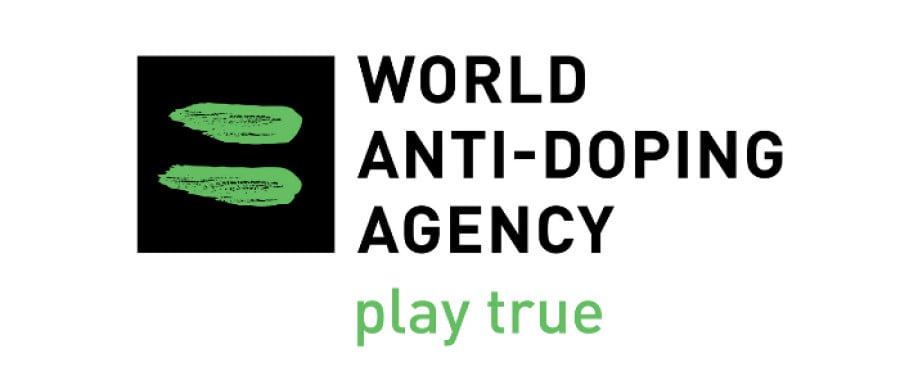WADA welcomes significant decision by Court of Arbitration for Sport
English
Press Release
26th April 2019
A newly developed method for detecting the use of prohibited substances in athletes has led to a significant and unprecedented 29 March 2019 decision by the Court of Arbitration for Sport (CAS) in favour of the World Anti-Doping Agency (WADA).
CAS issued a final award confirming Anti-Doping Rule Violations (ADRVs) in the cases of the Ukrainian track and field athletes, Olesia Povh and Olha Zemliak. Both athletes were convicted of using a prohibited substance based on the detection of non-physiological levels of testosterone in their blood serum samples following analysis in the WADA-accredited laboratories in Lausanne, Switzerland, and Seibersdorf, Austria.
The testing was initiated by the Athletics Integrity Unit (AIU) of the International Association of Athletics Federations (IAAF). This led to the subsequent investigation, which resulted in these important convictions. The measurement of testosterone levels in blood serum constitutes a further tool for Anti-Doping Organizations (ADOs) to detect and prosecute doping, even where urine samples might be reported as negative.
WADA Director General Olivier Niggli said: “WADA welcomes this decision by CAS, which could have a long-term positive impact on clean sport. I would also like to commend the AIU for their excellent work which led to this outcome. The decision sets an important precedent and this new method of detecting doping represents another way for ADOs to secure Anti-Doping Rule Violations against those who choose to cheat. It is a significant victory for clean sport and for athletes around the world.”
Significantly, CAS ruled that there could be no doubt on the evidence that the method used in measuring testosterone in blood serum was scientifically valid, paving the way for further examples of this method being used in the future.
Olesia Povh was sanctioned with a four-year period of ineligibility for intentional doping while Olha Zemliak received an eight-year period of ineligibility as it was her second violation.
Français
24 avril 2019
L’AMA salue une décision importante du Tribunal arbitral du sport
Une nouvelle méthode permettant de détecter l’utilisation de substances interdites chez les sportifs a amené le Tribunal arbitral du sport (TAS) à prendre, le 29 mars 2019, une décision importante et sans précédent en faveur de l’Agence mondiale antidopage (AMA).
En effet, le TAS a rendu une sentence définitive confirmant une violation des règles antidopage (VRAD) dans le cas des athlètes ukrainiennes Olesia Povh et Olha Zemliak. Les deux athlètes ont été déclarées coupables d’avoir utilisé une substance interdite après que des niveaux de testostérone non physiologiques eurent été détectés dans leurs échantillons de sérum sanguin à la suite d’une analyse effectuée aux laboratoires de Lausanne, en Suisse, et de Seibersdorf, en Autriche, accrédités par l’AMA.
Ces contrôles ont été effectués à l’initiative de l’Unité d’intégrité de l’athlétisme (AIU) de l’Association internationale des fédérations d’athlétisme (IAAF) et donné lieu à l’enquête subséquente, qui s’est soldée par ces condamnations importantes. L’évaluation des niveaux de testostérone dans le sérum sanguin constitue un outil supplémentaire permettant aux organisations antidopage (OAD) de détecter le dopage, même dans l’éventualité d’échantillons d’urine autrement qualifiés de négatifs.
« L’AMA salue cette décision du TAS, qui pourrait avoir un effet positif à long terme sur le sport propre, a déclaré le directeur général de l’AMA, Olivier Niggli. Je tiens aussi à féliciter l’AIU pour son excellent travail qui a mené à ce résultat. Cette décision établit un précédent important, et la nouvelle méthode de détection offre aux OAD un autre moyen d'obtenir des sanctions pour violation des règles antidopage contre ceux qui décident de tricher. Il s’agit d’une victoire importante pour le sport propre et pour les sportifs du monde entier. »
Fait important, le TAS a statué que les preuves ne laissaient aucun doute quant à la validité scientifique de la méthode utilisée pour évaluer les niveaux de testostérone dans le sérum sanguin, ouvrant ainsi la voie à d’autres cas incluant l’utilisation de cette méthode à l’avenir.
Olesia Povh a été sanctionnée d’une période de suspension de quatre ans pour cause de dopage intentionnel, tandis qu’Olha Zemliak s’est vu imposer une période de suspension de huit ans, étant donné qu’il s’agissait dans son cas d’une deuxième violation.




